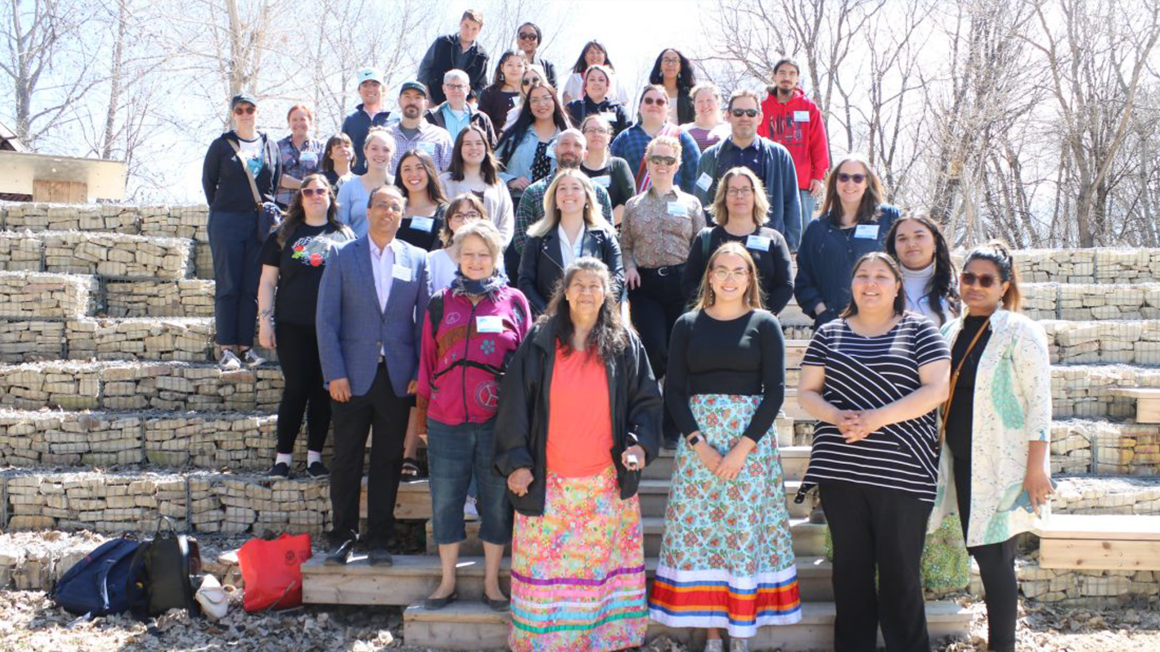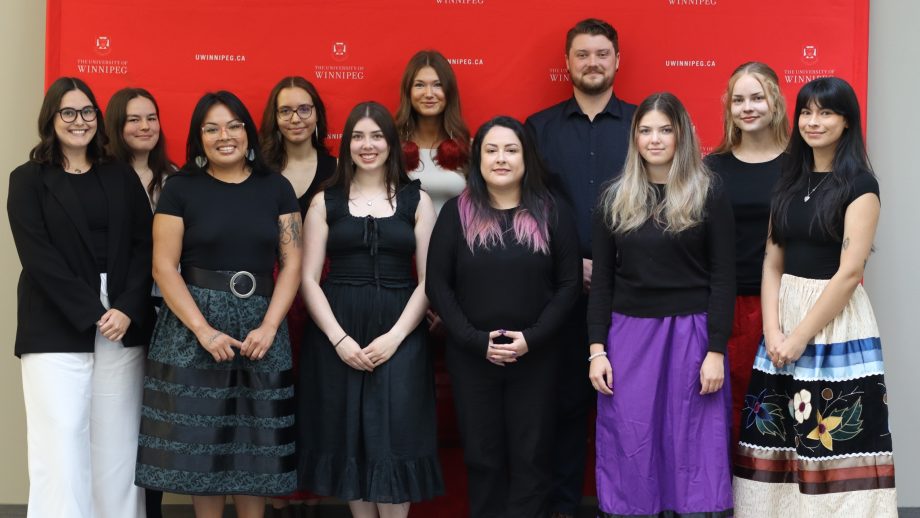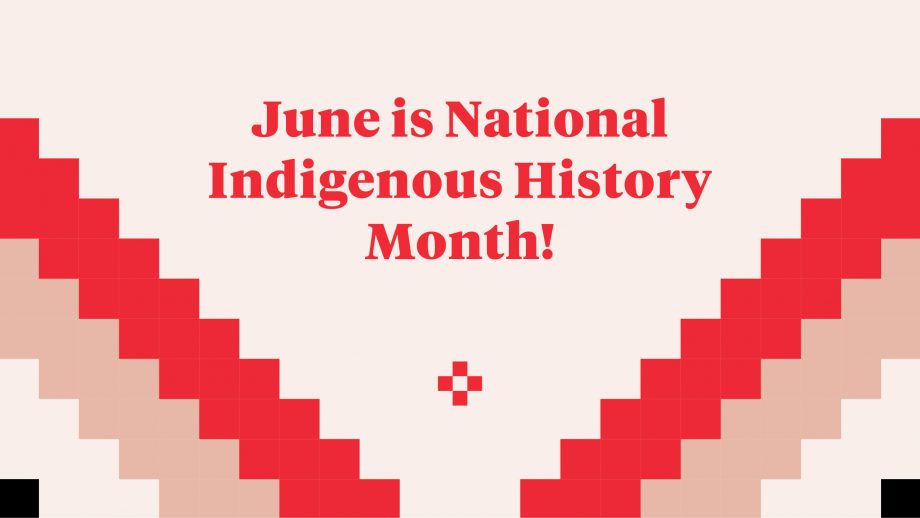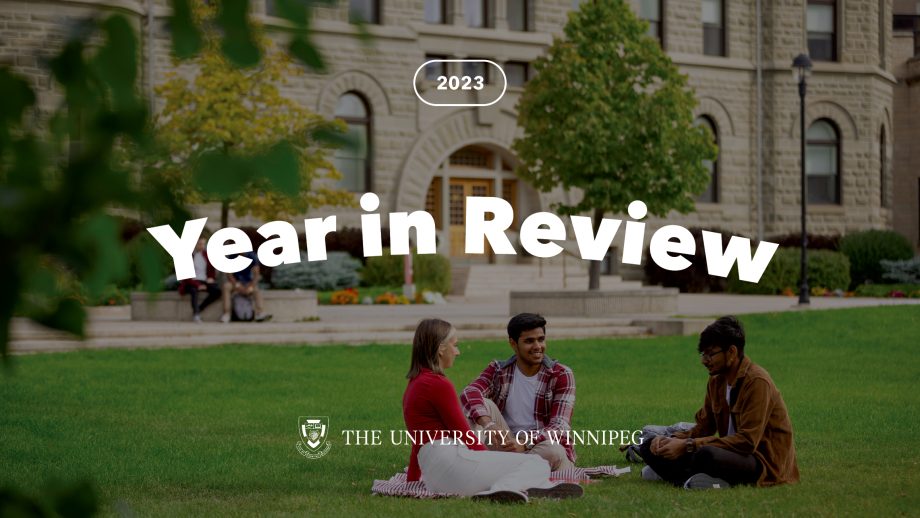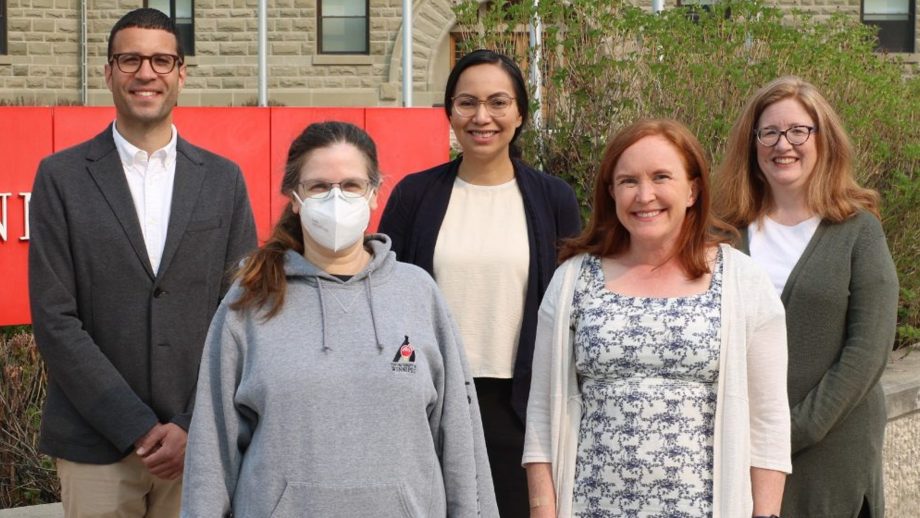The University of Winnipeg’s Faculty of Graduate Studies has celebrated another successful year of the Indigenous Summer Scholars Program (ISSP).
Elder Sharon Pelletier kick-started the program with a sharing circle in May that included the scholars and their faculty mentors. In total, 20 scholars embarked on 12-week applied research projects this summer in a variety of topics and fields of study with great success. Among the projects was a research trip to Serbia.
The program concluded earlier this month with an ISSP Colloquium and Closing Ceremony, which saw each student researcher present their research project and answer questions. For many of the scholars, this was their first time presenting their research to an audience.
Emily Fedora, Shannon Robson, and Jacee Turner spent their time in Serbia under the supervision of UWinnipeg anthropologist Dr. Mirjana Roksandic. The Roksandic research team examines the Balkan Peninsula as a hub of movement and interaction of human groups from the very early – initial – peopling of Europe until the much later Roman and early Medieval migrations.
The students participated in both fieldwork and lab analysis. They learned to collect, process, and analyze various data sets and cross-validate them in building plausible scenarios of human and animal migrations and interactions with the environment.
My colleagues were impressed with their training abilities.
Dr. Mirjana Roksandic
Dr. Roksandic says it was an exceptional learning and research experience for the training scholars.
“Emily, Shannon, and Jacee were the best ambassadors for the program,” said Dr. Roksandic. “My colleagues were impressed with their abilities.”
Dr. Alex Tepperman, Assistant Professor in the Department of Criminal Justice, worked with fourth-year psychology student Alysa Baraniuk.
The project, which is part of a larger undertaking by Dr. Tepperman and Dr. Kelly Gorkoff, seeks to better understand the role of homicide as a public health issue in Manitoba by locating the social determinants that connect homicide victimization to other forms of preventable death.
Not knowing what to expect, Baraniuk found her time in the ISSP to be an eye-opening experience. Working with Dr. Tepperman, Baraniuk was able to hone her research skills and the program allowed her to make connections with other Indigenous students who are on the same path of study.
“Dr. Tepperman was an amazing mentor,” Baraniuk said. “He made himself available in understanding the graduate school process and taking the time to help me with any questions. This experience has helped me understand what research entails and was less scary than I anticipated.”
Dr. Tepperman encouraged Baraniuk through her concerns and trepidation.
“The ISSP is one of those rare experiences in academia that allows a professor to become the change they want to see by allowing us to work with – and learn from – the sort of extraordinary students we hope will become our colleagues, ” said Dr. Tepperman.
Since ISSP’s first cohort in 2017, 87 Indigenous students in their third or fourth year of undergraduate studies have been given the opportunity to explore the possibilities of graduate studies through a variety of mentored research projects.
“The ISSP has grown over time, with this year being the largest cohort,” said Dr. Manish Pandey, UWinnipeg’s Acting Dean of Graduate Studies. “It is great to see growing interest in the program among both students and research supervisors. In particular, we thank research supervisors for providing students with an opportunity to work with them. As a number of students indicated in their presentations at the ISSP Colloquium, this opportunity has motivated them to consider advanced studies and research after their undergraduate degrees.”
The ISSP is one of two Indigenous Pathway Programs at UWinnipeg. The other is the Pathway to Graduate Studies program, which focuses on STEM research opportunities.

